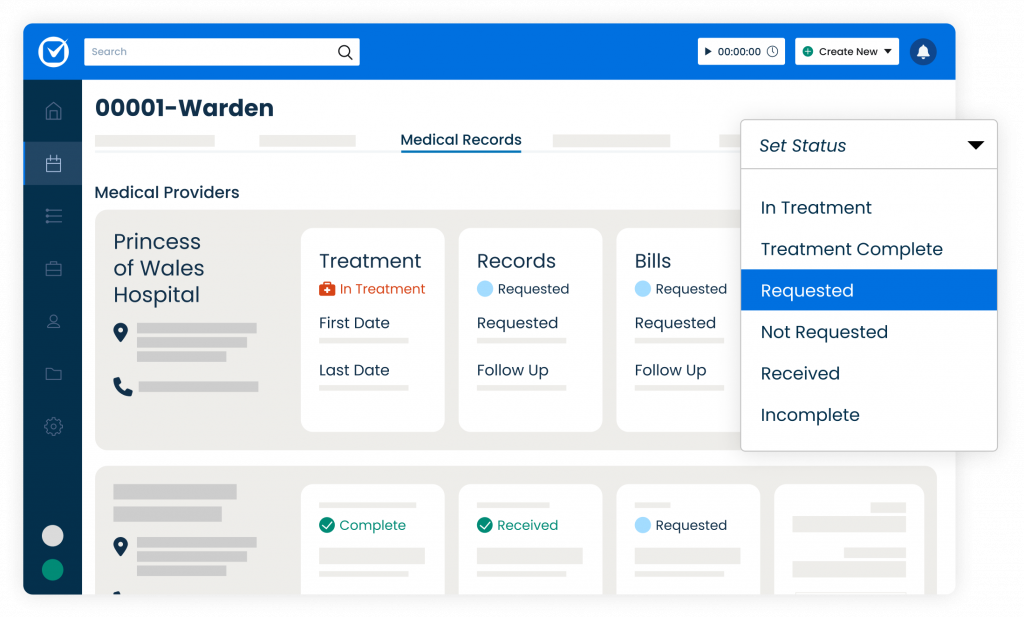At its annual Clio Cloud Conference in Nashville today, the law practice management company Clio introduced an array of major new products and product updates, calling the series of announcements its most expansive product update ever in its 15-year history.
(I discuss the product updates and enhancements in a separate post today.)
New products include an add-on offering a suite of features designed for personal injury lawyers; Clio Duo, a proprietary generative artificial intelligence that will be built natively into all Clio products starting in 2024; and Clio File, an electronic court filing and service feature built directly in Clio Manage, making it the first law practice management platform to directly incorporate e-filing.
Clio also introduced new features designed specifically for legal aid organizations, Clio for Legal Aid, that will offer discounted subscription plans and include tools to help them create and manage grants and funding sources, report on grant deliverables, calculate intake eligibility, and use grant-funded or sliding-scale billing functionality.
It also announced a slew of updates and enhancements to its existing products, which I cover in a separate post.
“This year, we have focused on centralization and connectivity throughout our platform, helping legal professionals to bring more of what they do into Clio,” said Jack Newton, Clio’s founder and CEO. “By creating more and faster connections to clients, colleagues, and the courts, Clio provides the essential tools they need to foster strong relationships, increase profitability, and run a healthy, thriving practice.
Personal Injury Add-On
In an move designed to make its platform more useful for the specific needs of personal injury lawyers, Clio today introduced a Personal Injury Add-On to Clio Manage, which it says is specifically designed for a PI lawyer’s distinct workflows, procedures and requirements.
The add-on includes features that allow PI lawyers to track the status of medical records and bills, manage expenses, organize damages, and maximize client settlements.
Clio says there are some 50,000 personal injury lawyers practicing across the United States.
Clio File
Also announced today is Clio File, an e-filing and e-service feature built directly into Clio Manage. Slated to be rolled out in 2024, Clio says this will make it the first law practice management platform with built-in e-filing.
The feature enables legal professionals to electronically file, serve, and deliver court documents directly from Clio Manage.
This feature words in tandem with two other features Clio already offered – its built-in rules-based calendaring that came after it acquired CalendarRules in 2021 and its automated preparation of court documents for all 50 states using its document automation product Lawyaw, which it also acquired in 2021.
Now, Clio users can also directly file documents in certain court systems.
The e-filing feature could begin rolling out by the end of the year, but the scheduled availability is in early 2024 to states that accept e-filing and e-services in their court systems, starting with Texas.
Clio Duo
At a time when seemingly every legal tech company is rolling out generative AI capabilities, Clio is no exception. Today it announced its plans to integrate AI functionality throughout its platform and products, starting with the introduction in 2024 of Clio Duo.
Clio said that Clio Duo is a proprietary generative AI technology that will be natively built into all of its offerings, starting with Clio Manage.
“Clio Duo will serve as a coach, intuitive collaborator, and expert consultant to legal professionals, deeply attuned to the intricate facets of running a law firm. It will enable Clio customers to unlock the potential of their own data, helping them to become even more effective business owners, and drive better outcomes for their clients,” the company said.
The product will adhere to the highest standards of security, compliance, and privacy, Clio said, and include audit log functionality that will allow all AI activity to be logged and discoverable.
 Robert Ambrogi Blog
Robert Ambrogi Blog
